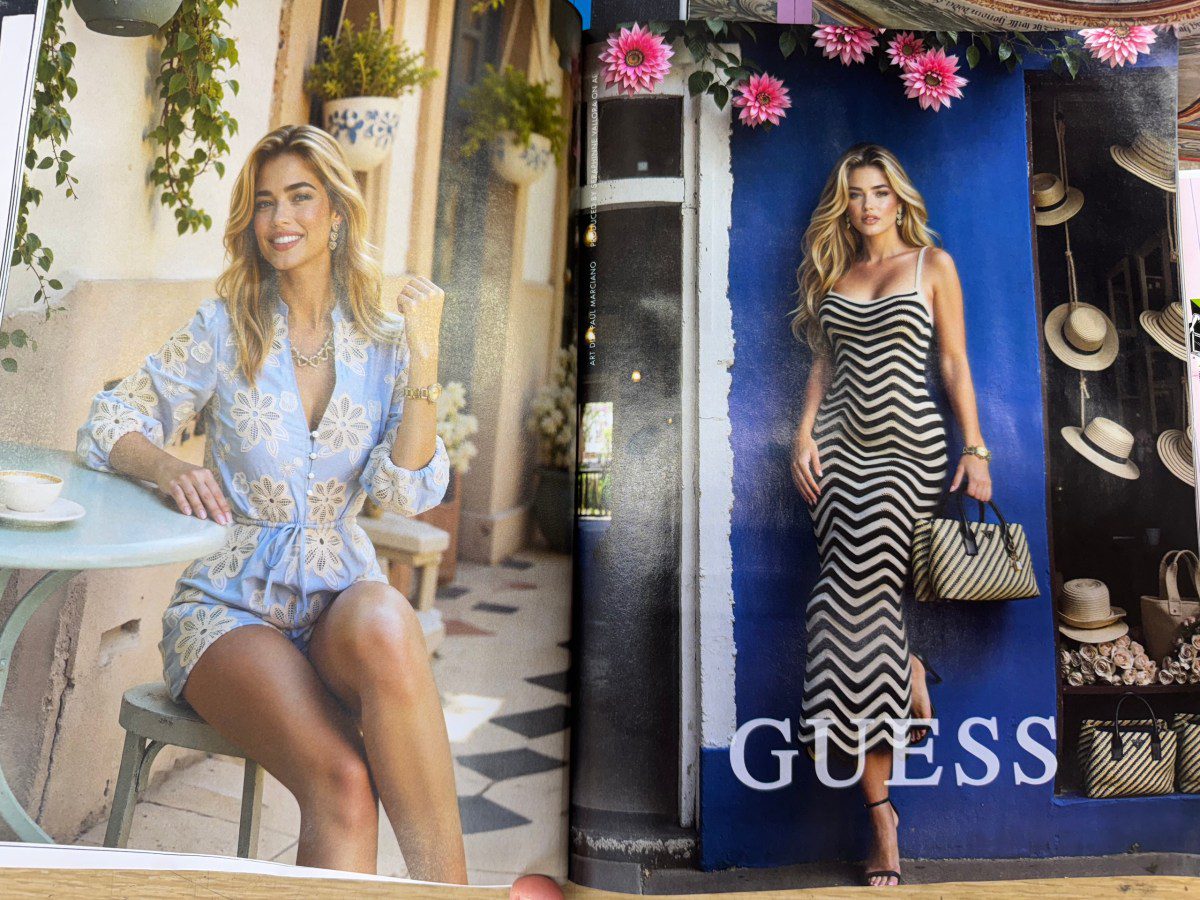The Rise of AI in Fashion: Is It Redefining Diversity or Just Replacing Creatives?
Have you noticed how AI is creeping into every corner of our lives? It’s even reshaping the fashion industry. In 2023, Sarah Murray, a commercial model, had her first encounter with an AI-generated fashion model. This beautiful woman of color wore a Levi’s denim overall dress, and for Sarah, it was a bittersweet moment. Let’s face it, seeing an artificial model of diversity in a world that’s still learning how to embrace real diversity felt exhausting and more than a little disappointing.
What’s the Deal with AI Models?
It’s no secret that the fashion industry has struggled with diversity. So, when Levi’s teamed up with Lalaland.ai to create an array of “diverse” digital models, it felt like a step forward, right? Not really. The backlash was swift. New York Magazine dubbed it “artificial diversity,” and many questioned whether we really need robots stepping in where real humans should be.
For Sarah, it’s not just about competition; it’s about identity. She told TechCrunch, “Modeling as a profession is already challenging without having to compete against digital standards of perfection.” Think about it: If you can create the ideal model on a computer, what happens to the beautiful, imperfect humans trying to make it in the industry?
The Vogue Ad Backlash
Two years later, things have only escalated. Vogue’s July print edition featured an AI-generated model in a Guess ad, literally turning North American beauty standards into a computer program. The internet exploded, and for many, the distinction between an ad and an editorial felt like splitting hairs.
When even Vogue gives a nod to AI, you have to wonder: Where does that leave real people in the fashion industry? It raises questions about jobs for models, photographers, and stylists. Are we just going to be replaced by pixels?
The Cost of “Innovation”
Sinead Bovell, another industry insider, puts it bluntly: e-commerce models are most at risk for automation. “E-commerce is where most models make their bread and butter,” she said. Real models bring authenticity and relatability that AI often fails to capture.
But here’s the catch: Many brands feel pressured to cut costs, and AI provides a cheaper alternative. Paul Mouginot, a technologist, points out that you can start with a flat-lay product shoot and use a virtual model to generate realistic images. Brands like H&M and Calvin Klein have already started using AI, and it’s hard to argue against the math.
Why Are Brands Going for AI?
- Cost-Effective: Cheaper than hiring real models for multiple shoots.
- Scalability: Brands now need 400 to 400,000 pieces of content to keep up with social media demand.
- Consistency: Less risk of the unpredictable elements that come with working with human talent.
From Diversity to Digital Dummies?
While some see using AI as a way forward, it definitely raises eyebrows about authenticity. Sarah Murray believes brands like Levi’s are merely supplementing human talent with “fake” diversity. “If they ever had an open casting call,” she argues, “they’d see the endless amounts of diverse models eager for the opportunity.”
Bovell has called this “robot cultural appropriation.” When brands create AI avatars for marketing without genuinely representing diverse culture, it’s not just about tech. It’s about ethics, identity, and respect.
A Future Full of Questions
Claudia Wagner, founder of Ubooker, summed it up well: AI modeling still feels experimental. The recent Guess ad didn’t feel groundbreaking; it felt like yet another brand trying to ride the AI wave for visibility. While AI has potential, it’s the human touch that crafts genuine narratives.
So, what does that mean for the future? For the most successful brands, authenticity remains central, especially in luxury fashion. If Vogue leans into the AI trend more openly, could that shift perceptions? Only time will tell.
But here’s where it gets really interesting: as AI evolves, it may reshape the landscape in ways we can’t yet imagine. So, what’s your take? Can AI coexist with real human talent in fashion, or are we facing a future where diversity is merely a programmed feature?
Want more insights like this? Let’s keep the conversation going!
